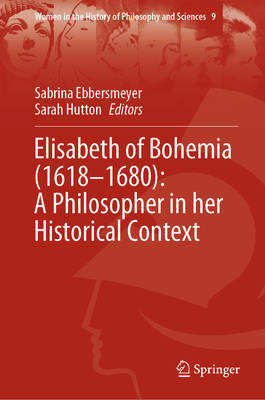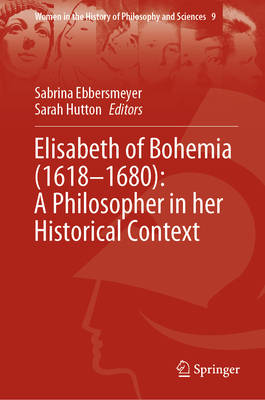
Door een staking bij bpost kan je online bestelling op dit moment iets langer onderweg zijn dan voorzien. Dringend iets nodig? Onze winkels ontvangen jou met open armen!
- Afhalen na 1 uur in een winkel met voorraad
- Gratis thuislevering in België vanaf € 30
- Ruim aanbod met 7 miljoen producten
Door een staking bij bpost kan je online bestelling op dit moment iets langer onderweg zijn dan voorzien. Dringend iets nodig? Onze winkels ontvangen jou met open armen!
- Afhalen na 1 uur in een winkel met voorraad
- Gratis thuislevering in België vanaf € 30
- Ruim aanbod met 7 miljoen producten
Zoeken
Elisabeth of Bohemia (1618-1680): A Philosopher in Her Historical Context
€ 126,95
+ 253 punten
Omschrijving
This book showcases Elisabeth of Bohemia, Princess Palatine (1618-1680), one of the foremost female minds of the 17th century. Best known today for her important correspondence with the philosopher René Descartes, Elisabeth was famous in her own time for her learning, philosophical acumen, and mathematical brilliance. She was also well-connected in the seventeenth-century intellectual circles. Elisabeth's status as a woman philosopher is emblematic of both the possibilities and limitations of women's participation in the republic of letters and of their subsequent fate in history. Few sources containing her own views survive, and until recently there has been no work on Elisabeth as a thinker in her own right. This volume brings together an international team of scholars to discuss her work from a cross-disciplinary perspective on the occasion of her fourth centenary. It is the first collection of essays to examine a range of her interests and to discuss them in relation to her historical context. The studies presented here discuss her educational background, her friendships and contacts, her interest in politics, religion, and astronomy, as well as her views on politics, her moral philosophy and her engagement with Cartesianism. The volume will appeal to historians of philosophy, historians of political thought, philosophers, feminists and seventeenth-century historians.
Specificaties
Betrokkenen
- Uitgeverij:
Inhoud
- Aantal bladzijden:
- 218
- Taal:
- Engels
- Reeks:
- Reeksnummer:
- nr. 9
Eigenschappen
- Productcode (EAN):
- 9783030715267
- Verschijningsdatum:
- 7/10/2021
- Uitvoering:
- Hardcover
- Formaat:
- Genaaid
- Afmetingen:
- 203 mm x 239 mm
- Gewicht:
- 453 g

Alleen bij Standaard Boekhandel
+ 253 punten op je klantenkaart van Standaard Boekhandel
Beoordelingen
We publiceren alleen reviews die voldoen aan de voorwaarden voor reviews. Bekijk onze voorwaarden voor reviews.










